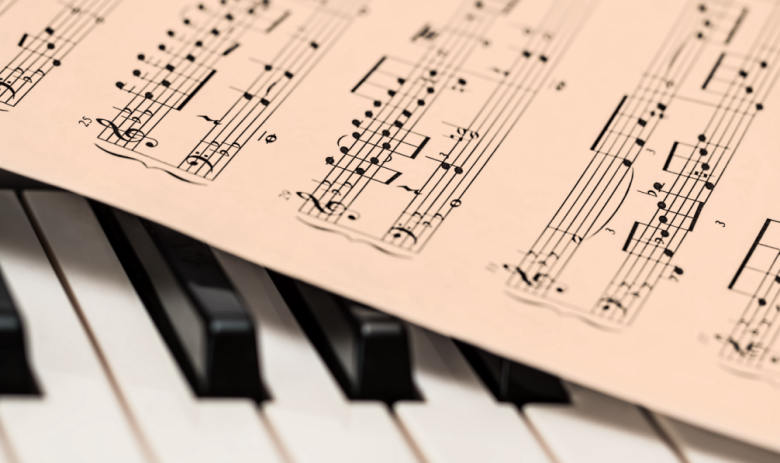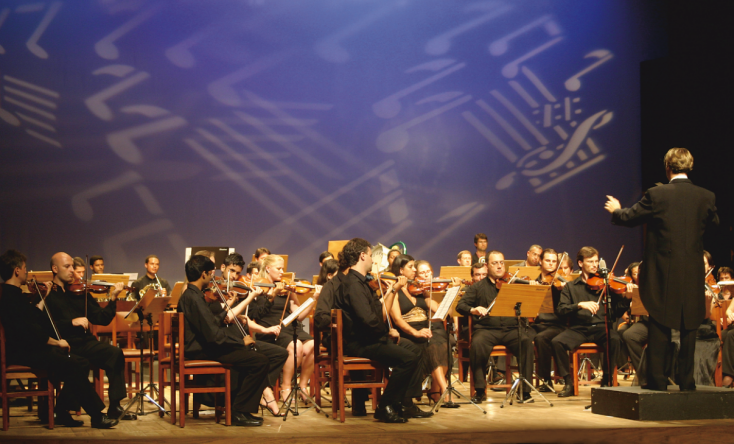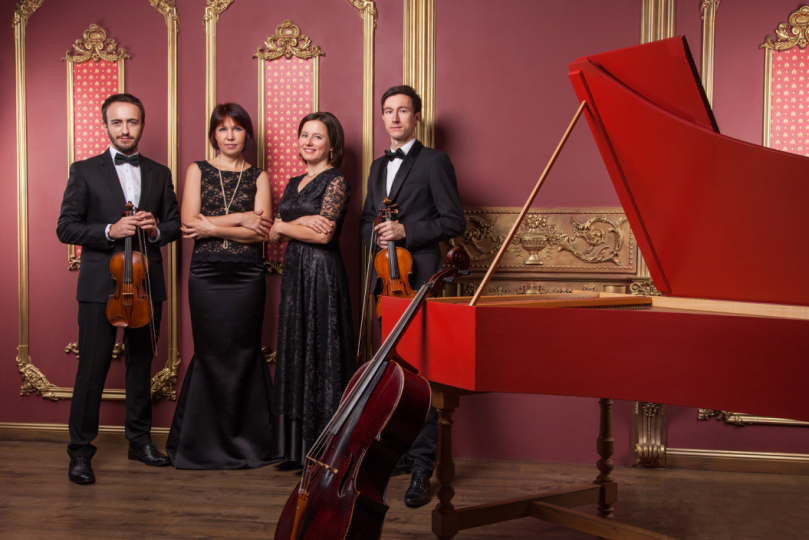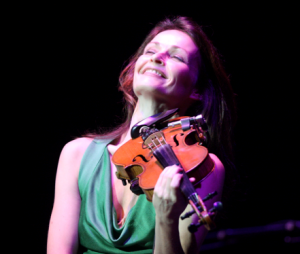Your personal music search space.
Augment your understanding of music.

______________________________________________________________________________

YMUSIC SEARCH ENGINE
Music is more than a casual leisure, an art or the new way to increase the benefits of a company. It is all of that and even more. The music industry is a rich ecosystem in which everyone and everything has a specific place. From the composer to the listener, from psychology to spirituality, from art to science, get insights on each field of music, learning about craft or history, about human behavior or consciousness. A place is also given to ethical questions.
MUSICAL CULTURE IN ITS VARIOUS ASPECTS
MUSIC TALKS AROUND LISTENERS AND COMPOSERS

Listen to the rendering of “L’Homme armé” by Karl Jenkins! Try the YMusic search, your free personal assistant (it includes musical criteria to select music) to discover more about music and sound!
The history of musical borrowing
In the early days, what is still called the ‘art of borrowing’ was not illegal as it became later. Some great composers took existing fragments or complete pieces of music and refined them into other versions of these pieces, often improved. Borrowing was more seen as a dialog between pieces of music. Even Mozart borrowed some music too: in one of his operas, he reused tunes popular at the time, written by other music composers for other operas. Different questions were asked about that practice, for instance: how is the borrowing used in the derivative work? Why is it borrowed? During the Medieval period, not only musical borrowing was allowed, but it was practically forced. In fact, the music used for religious liturgy was controlled and it was restricted to an authorized repertoire. Music composers were forced to use existing pieces of plainchant as a model to create new ones.
Yet, as time passed, these borrowings resulted in new polyphonic pieces based on monophonic originals. These polyphonic pieces brought music into the Renaissance era. At that time, a Latin Mass named “L’Homme armé” (‘The armed Man’), composed by Johannes Regis, was able to give birth to more than 40 other ones, under the pen of 20 different composers, including Cristóbal de Morales and Palestrina during the 15th and the 16th centuries. And even the 20th century had its version, rendered in music by Karl Jenkins.
During the Baroque period, borrowing was still acceptable and perceived as necessary. Handel made borrowings. Like most composers of his time, Handel had been taught by improvising, copying, playing and reusing previous musical material. He reshaped it, concerned with the proportion and balance of the phrases and themes. Handel was constantly creating better musical interpretations of the elements he was borrowing: he was specialized in transformative imitation. Curiously, it is during Handel’s life that the first sheet music publishers, originating in Great Britain too, published sheet music written by Handel without his agreement. And in the second half of the 18th century, borrowing became illegal owing to the action of these publishers.
Musical borrowing today
Modern music listeners do not recognize musical works that contain borrowed materials as original creations, especially if these materials come from well-known songs. Why? First they are used to hearing the commercial pronouncements of music labels about intellectual property and against piracy. Plus nobody believes any more that music is perishable. It was the case during the 19th century: once heard, music would disappear. Music creators saw themselves as practitioners rather than creators of stable musical objects. With the development of copyright laws, the notions of personhood and individuality contributed to the rejection of musical borrowing. The 21st century is the era of covers and remixes, those remixes, which are done in strict accordance with law.

Composers and musical borrowing

Discover how music performers treat the sounds of music you like! Try the YMusic search engine, your free personal assistant (it includes musical criteria to select music), and evaluate the results of various types of practice!
What are some of the challenges of music performance?
Music performers and liberty
Not all musicians want to be leaders. Some just need to figure out what happens, when, playing, they execute what they have in mind. Being told what they must do, they may feel half disconnected from the desire to play and they cannot always obtain satisfying results. Performers must be supported by their whole self and set their targets to surpass themselves. For some of them, it is a question of personal integrity: they do not want to be caught too much by the anxiety that is sometimes linked to any competitive spirit.
Music performers want to make a decent living out of music, but concentrate on music first. Instead of searching for happiness, they rather want to feel the contentment, fascination or thrill to make a little progress. Even and perhaps especially when life is tough, they may achieve something just for themselves. Most of the time, they are practicing, building and building, not knowing when inspiration will come but making themselves available to capture it when it appears.
The commitment to music and composers
Being creative, performers nevertheless want to be faithful to the pieces of music they play. Faithful does not mean impersonal. All elements in a piece of music do not trigger all performers in an identical way: the performer is bound by the score, however, each performance is individual, and performers, through music, can explore different aspects of their personalities. Performing musical pieces at a different speed and dynamic, in one word in different grooves, they may explore all their aspects and become more true to themselves.
Sometimes, the role of the conductor is essential in that process, being a leader integrating and freeing performers who can then find their authentic self as musicians and execute a better performance. By doing so, the conductor helps them to understand why they want to perform the way they perform, bringing various questions to light. Both conductor and performers take time to work together as a team, going deeper and deeper into the understanding of a piece. Sometimes, they may have the good fortune of getting the manuscript of a score without any recording, as it forces them to envision the musical work in another way.
How does music speak to performers and listeners? Does it have a transformative power? Or the power to unify? Whatever the answer is, musicians, as well as music listeners, generally feel fully alive when the music is there. They are open to it, providing a place so that music can express itself. In a sense, performers can transmit music like a medium. When they do it, they may cease to be too much concerned by the effect they produce on listeners: those ones naturally perceive that they are committed to music.

Listen to new music performers! Try the YMusic search engine, your free personal assistant (it includes musical criteria to select music), and enjoy the best of their performance in all the styles of music you love!
Getting used to letting go
More than bringing something out of themselves, music performers guide listeners so that they can appropriate music. It does not prevent them from being driven by passion: some performers feel like they risk their souls, being creative on stage. That creativity may be nurtured by contact with other musicians that use their instrument, but who execute pieces of music in genres that are not so familiar to them. Some performers, at some time or other, may feel that getting on the stage, they accept a sort of abandon of any kind of control. They accept just having a rough idea of what is going to happen during a performance. They get used to that reality.
Also, they generally consider that they get the most of a piece of music when they have publicly performed it several times. Like all professionals involved in other fields, they learn to be patient with themselves, as one never can be as perfect as one wants. Discovering a certain self-acceptance, they find that progress happens more spontaneously. Refusing to be told how to play may be, for some performers, a way to break from control. Wanting to discover what happens exactly after every move instead of being managed through each second of their learning, they develop a very personal sense of proportion that is liberating for them. Exploring the repertoire for themselves, they are often perceived by audiences as very authentic performers.
Avoiding heading in only one direction
How can musicians feel that they have reached that state where they can work hard without being too frustrated by imperfection? It depends on the musician. And sometimes, for some of them, feeling awareness of their shortcomings is what pushes them to self-accomplishment. However, for others, it is when they find love in their life, be it romantic love or intimate friendship: at that moment, they are searching for approval, but they will never find it, because their quest is a construction of their mind! At this point, they understand that it is the same in the framework of their relationship with music: the more they try, the more they feel useless dissatisfaction. And when they understand that, the dissatisfaction is diminished: a problem well understood is a problem half solved.
Over the course of time, many performers feel that their best return comes at the moment when, practicing, they no longer want something to happen in one particular way only, but on the contrary renounce their control over absolutely every aspect of their playing. By doing so, they accept the emotional impact music may have on them. Their playing is not only a cerebral activity: combined to the psychomotor aspect of performance, the action of the brain brings to the surface a result that is more than the combination of thinking, feeling and doing.
How do music performers overcome perfectionism?
Discover numerous music performers telling you new musical stories! Try the YMusic search engine, your free personal assistant (it includes musical criteria to select music), and feel the magic of music!
Instilling confidence
Do music performers fear failure or are they just following their own intuition? It probably depends on circumstances. Performers who are encouraged by their teachers to be bold are generally grateful. They like to see smiles and to be encouraged to innovate and they are never told to produce each note in a particular and restrictive way. They are never forced to follow specific fingerings given by their teachers.
Performers love how their teachers let them come up with answers themselves. They thank their teachers for asking the right questions so that they can figure things out on their own, rather than being told how to play in a specific way. Such teachers instill confidence. Performers may discover how they feel about the piece. Their teachers do not lock them in a constraining way of thinking, they do not force them to execute pieces of music like everyone else does. Besides their teachers, their music instruments are important for performers. Carefully chosen, they help them to open a new world of expression; they give them new opportunities with the pieces of music they play: performers can interpret music in a new way.
Telling a musical story as it is the first time
One result of having the freedom to play while learning is that performers enjoy taking risks, be it during practice or in the framework of a public performance, trying something new even when they are in front of an audience. Supported by a solid practice, it may give an improvisational character to their playing: listeners feel that, in a sense, they are attending a performance that is warm and intimate, that they are listening to a musical story that is played for them, even if that story has a canvas provided by the score.
Performers who feel free to play a music score in a creative way have more possibilities to move on and let it go, instead of feeling overwhelmed when they make some little mistake that, most of the time, most of the audience does not even notice. They are rigorous, but they learn to judge themselves not too harshly. And each experience helps them to increase their musical knowledge.
Telling musical stories verges on meditation. Performing, the musician is getting into a very focused state, creating space, envisioning how they will execute the next notes, hearing it in their head before playing them. Like yoga practitioners, performers are getting rid of a lot of things. They zone out and feel their attitude as a gift. Yet it does not prevent them from establishing communication with an audience. But they do it in a certain way: for instance, they may be like actors on stage, in order to help listeners to enter in contact with the musical story: the audience can appropriate the music.
Is there a space in which a music performer may assume artistic risks?

Whether you want to engage with music for itself or not, say what is music for you! Try YMusic, your free personal assistant (it includes musical criteria to select music), and express what your idea of musical beauty is!
What is the philosophy of music?
Some questions asked by the philosophy of music and some answers given by philosophers
Philosophy being the study of the essential nature of existence, reality and knowledge, the philosophy of music, like all types of philosophies, is trying to answer to questions like: ‘How can music be defined?’, ‘How can music be significant in the framework of human existence?’, ‘Music and knowledge: what is the relationship?’, ‘How do music and emotions relate?’, etc. Philosophers who have studied music are numerous, from Plato to Sartre.
Over recent centuries, we may mention for example Leibniz, Kant, Schelling and Schopenhauer. Through arithmetic, Leibniz studied the links between music and painting. Kant defined music as an art expressing beauty thanks to harmony and form, adding that its target is to give us a form of pleasure that is disinterested. Schelling, an idealist, thought that music was the purest of the arts, being disembodied. Schopenhauer described music as a place where it is possible to experience freedom for the individual, confronted by a nature that he calls ‘will’ and that is driven by the survival of the species more than by the persons.
The values of music
The philosophy of music may be practiced by all types of scholars, musicians or not. There are atypical profiles: some music philosophers may be novelists, like Tolstoy was, or scientists, like Einstein. In the field of music itself, composers, conductors and performers generally dedicate themselves to their craft, which is composition, while there are philosophers who think about the musical phenomenon: Mozart and Beethoven on one hand, Pythagoras or Adorno on the other hand. However, a composer like John Cage and a conductor like Sergiu Celibidache took time to express how they saw the main aspects of human life and culture through music.
Now, often, the music philosopher is first a philosopher, as we saw above. Let us also mention, from recent decades, Jerrold Levinson, who was first a graduate in the philosophy of science, before becoming interested in the aesthetics of music. Like several researchers in the field of music psychology, Levinson said that the links between language and music are so strong that it could hardly be possible to separate them.
Levinson insisted on the values of music. He distinguished the intrinsic value and the instrumental value of music: the first is the value of engagement with music for its own sake and the second is a means to a good other than the good resulting from engagement with music for its own sake. Levinson also distinguished the value of music for an individual and its value for a given community or more broadly for mankind. These values are different and all individuals do not value music in the same way: the points of view of composers, performers and listeners are complementary rather than identical, even when someone is both composer, performer and listener.
What is the philosophy of music?